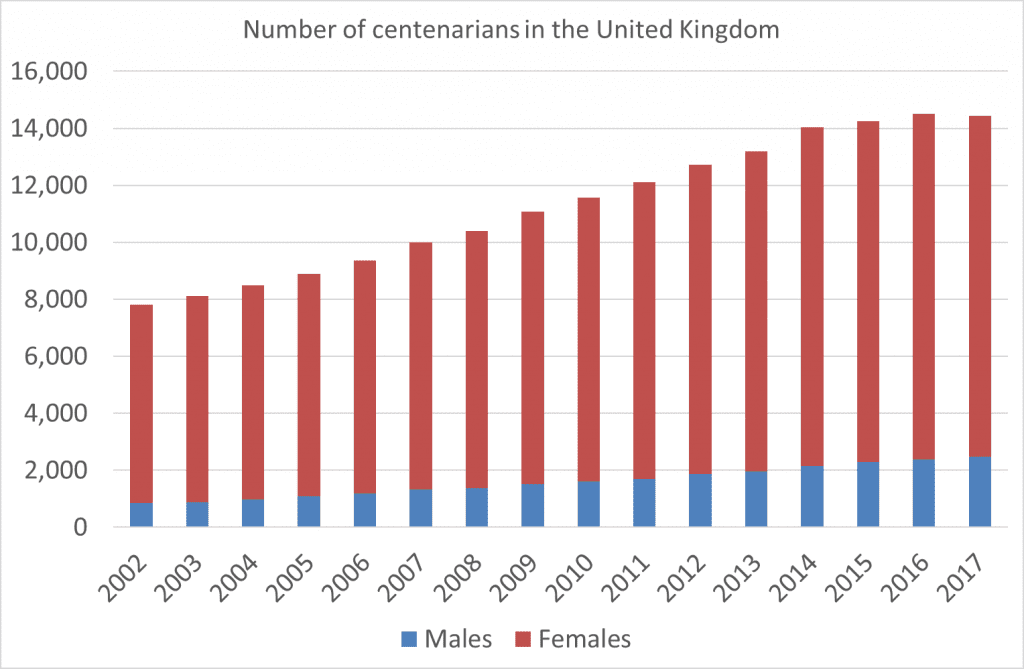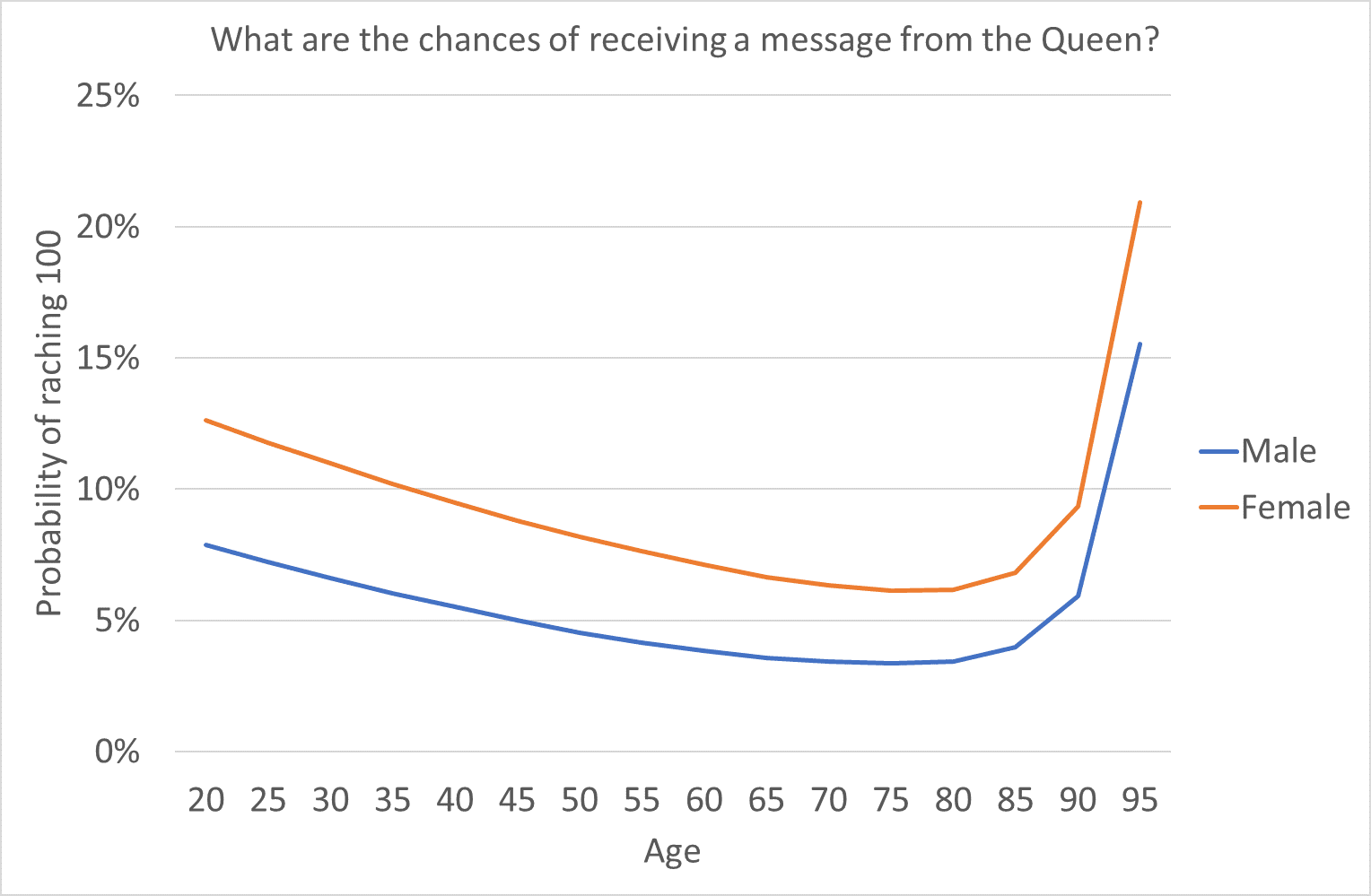In 1917, King George V began a tradition of sending out messages to members of the public who had achieved the unlikely feat of reaching his or her 100th birthday. This first batch of telegrams covered 24 recipients across the British Isles.
Fast forward to 2018 and there were, based on ONS data published in September 2018, over 14,000 centenarians alive and well in the UK.
The chart below illustrates the significant increase in the number of those that reached 100, and one of the most noticeable aspects is that a female is far more likely to achieve this feat than a corresponding male.
Whilst 14,000 represents only 0.02% of the UK’s population as whole, centenarians have in fact been the fastest growing age group in the UK over the last 15 years.
Current notable centenarians include Kirk Douglas (102) and Dame Vera Lynn (101) and others who achieved the feat included Bob Hope (who died age 100), and the current Queen’s own mother (who died age 101).
So how likely is it that any of us will join this illustrious list? The graph below shows that the answer is “not very likely”! Due to expected future improvements in life expectancies, it can be seen that a current 20 year old has a higher likelihood than a current 85 year old!
It can also be seen that, even if you are currently 95 years old, you only have a 1 in 5 chance of reaching the milestone.
Of course, it is also worth noting that, if the Cambridge University geneticist Dr Aubrey de Grey is to be believed, the first person who will live to 1,000 has already been born. It is Dr de Grey’s view that ageing is a disease that can be cured via regenerative therapies.
Whilst this would undoubtedly be welcomed by many, I would hate to think the reaction that I would get from pension trustees if this theory was built into their liabilities! ●
Aled Edwards, Principal Consultant and Actuary


